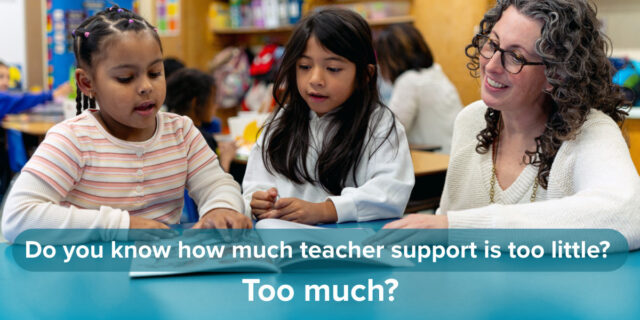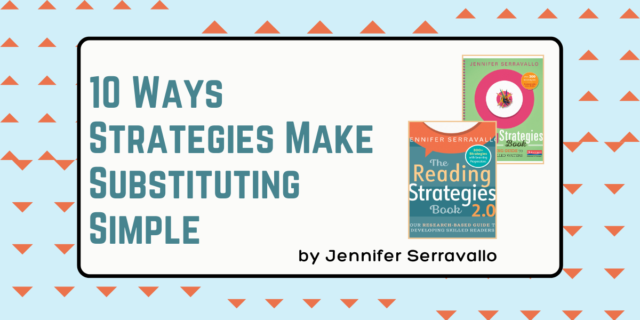
In Jennifer Serravallo’s brand new Teaching Writing in Small Groups, she provides a guide for implementing or sharpening up your small groups. One of the keys to successful groups is assessing writers to find a path for them toward their writing goals then grouping them accordingly. Jen’s Hierarchy of Writing Goals shows what to teach toward, and The Writing Strategies Book provides a menu of 300 lessons to teach. But how can you connect the goal a student is working on to a just-right strategy that will drive their progress?
The answer is writing progressions.
Teaching Writing in Small Groups includes online access for purchasers to downloadable writing progressions that make going from assessment to planning to teaching faster and more efficient.
Here’s what Jen says in Chapter two of the book about using progressions:
Whichever standards you use, check to see how they are organized—is the same skill mentioned in every grade as the work gets increasingly more complex? And also look at them critically to consider that the progression offered is one way the skill gets more complex for some children—but be open to other ways as well. Question whether a certain discourse is privileged and if there are not different ways students might grow when it comes to, say, organizing and transitioning ideas and arguments in opinion writing.
You may also have professional texts that offer grade-specific advice which can be used as a guide. For example, Writing Pathways (Calkins 2014) offers detailed rubrics by grade level with work samples for three modes of writing: informational, opinion, and narrative. If you use a writing program or curricular resource, you may have grade-specific look-fors in the form of rubrics. Looking across rubrics from grade-to-grade or unit-to-unit might also help you see how expectations progress.
In the online resources for this book I offer fifteen skill progressions for you to use as a guide—but not a rule of law—to notice strengths and envision ways for students to grow. Just remember, you can expect students to grow in ways outside these linear progressions, too.
Although there are ten goals in my Hierarchy of Writing Goals, some of the goals have more than one skill progression because of mode-specific information. For example, the “generating ideas” skill progression applies to all modes and genres, but for the goal of “elaboration” there are three separate progressions, one each for opinion, narrative, and informational writing. These progressions are informed by various standards including the Common Core, Writing Pathways (Calkins 2014), my study with Carl Anderson when he was writing his book Assessing Writers (Anderson 2005), and thinking I did when creating strategies and organizing them in increasing sophistication within each chapter of The Writing Strategies Book (Serravallo 2017).
You’ll find these fifteen skill progressions in the Online Resources for Teaching Writing in Small Groups. Each is tied to one of Jen’s ten writing goals.
Skill Progressions Included in Online Resources for Teaching Writing in Small Groups
- Composing with Pictures
- Engagement
- Generating Ideas
- Focus/Meaning
- Organization/Structure: Narrative
- Organization/Structure: Informational
- Organization/Structure: Opinion
- Organization/Structure: Poetry
- Elaboration: Narrative
- Elaboration: Informational
- Elaboration: Opinion
- Word Choice
- Spelling and Letter Formation
- Grammar and Punctuation
- Collaboration: Partnerships and Clubs
With the ready-to-go ideas for small-group instruction in Teaching Writing in Small Groups, its online skill progressions, and the lessons in The Writing Strategies Book, you’ll have everything you need for highly responsive and highly efficient writing instruction.
To learn more about Teaching Writing In Small Groups visit Heinemann.com.


